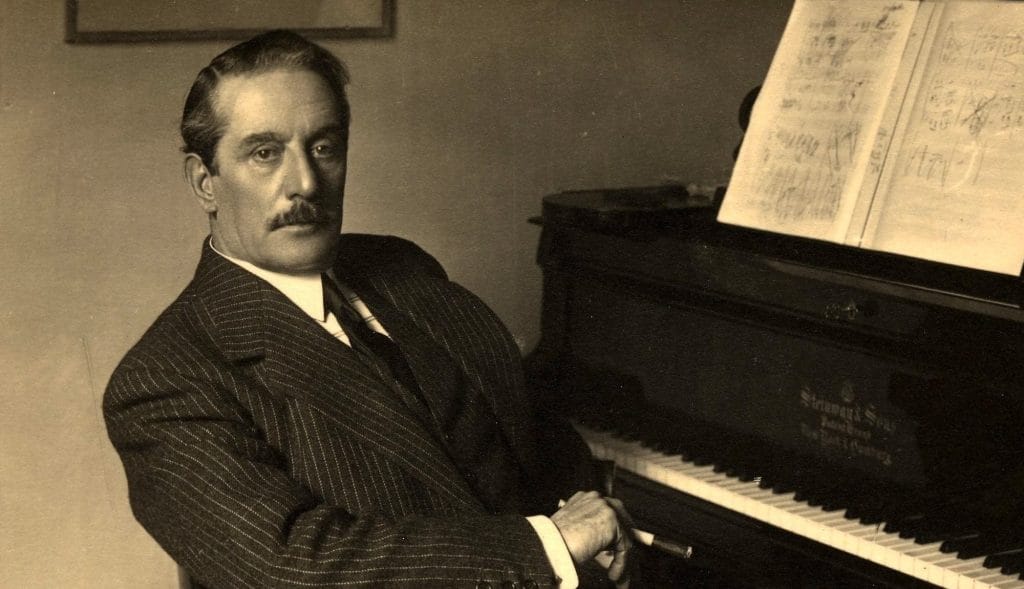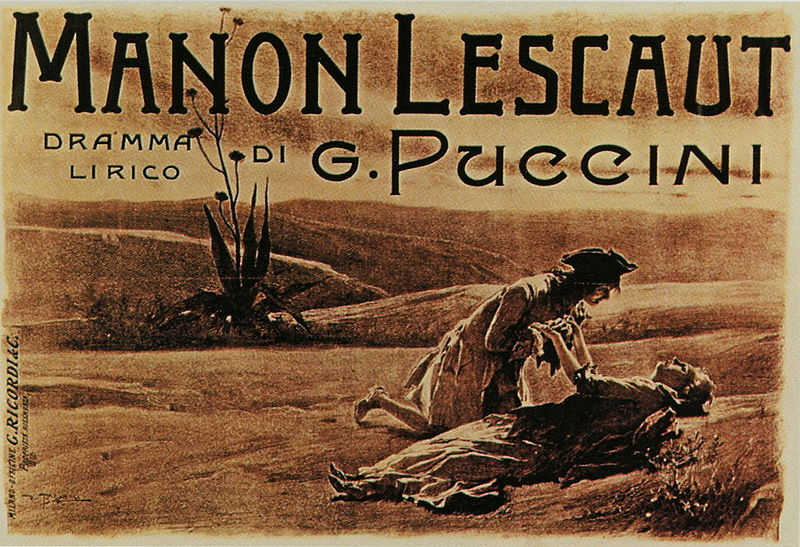Puccini’s “Manon Lescaut”: Three Powerful Excerpts

Manon Lescaut, Giacomo Puccini’s 1893 opera in four acts, tells a haunting story of ill-fated love.
Des Grieux, a student living in poverty, falls in love at first sight with the beautiful Manon, who is being taken by her brother to live in a convent. Des Grieux convinces Manon to run away with him. Yet, soon she becomes restless and torn between a life of passion with Des Grieux and material wealth with Geronte, a tax-collector and her arranged suitor. She leaves Des Grieux for Geronte, but soon returns, realizing her mistake. When Geronte catches the couple together, he has Manon arrested and deported to Louisiana. Des Grieux boards the ship to the United States, posing as a crew member. The couple successfully escapes to New Orleans, but Manon collapses of exhaustion. As the curtain falls, the dying Manon Lescaut declares her love for Des Grieux for the final time.

Based on a 1731 novel by Abbé Prévost, the story had already been the subject of Jules Massenet’s 1884 opera, Manon. As a result, Puccini was urged by his publisher to abandon the project. The composer persevered, writing,
Manon is a heroine I believe in and therefore she cannot fail to win the hearts of the public. Why shouldn’t there be two operas about Manon? A woman like Manon can have more than one lover…Massenet feels it as a Frenchman, with powder and minuets. I shall feel it as an Italian, with a desperate passion.
Manon Lescaut became Puccini’s first major operatic success. The triumphant opening night brought Puccini international attention as Italy’s foremost opera composer, the heir to Giuseppe Verdi. The influence of Wagner can be heard throughout the score. The orchestra rises to new prominence, the drama unfolds amid recurring leitmotifs, and there are quotes of the famous “Tristan” chord.
Here are three key excerpts from the opera:
Donna non vidi mai
At the beginning of Act I, Des Grieux’s entrance aria, Tra voi, belle, brune e bionde (“Among you beauties, dark and fair”) is carefree, youthful, and flirtatious. Donna non vidi mai, simile a questa! (“I have never seen a woman, such as this one!”) comes later in Act I when Des Grieux first meets Manon. In contrast, it is a soaring ode, and we become aware of Des Grieux’s development as a character. Manon’s leitmotif emerges with the tender recollection of her introduction, “Manon Lescaut mi chiamo.” Here is Luciano Pavarotti’s 1993 recording with James Levine and the Metropolitan Opera Orchestra:
Tu, tu amore, tu
The passionate, throbbing Act II love duet has been called “the emotional center of the whole opera.” (Malcolm Walker). At first, Des Grieux attempts to resist Manon’s advances. The turning point comes with the line, “Ah, vieni! colle tue braccia stringi Manon,” which brings a flashback to the melody of Donna non vidi mai. The scene climaxes with the “fate” motif (first heard at 5:50), one of the opera’s most central recurring leitmotifs. Rapturous waves of tonal color crest and fall before fading into a sensuous, chromatically descending harmonic progression.
Intermezzo
As the curtain falls on the Second Act, Manon is arrested and taken to the prison at Le Havre where she awaits extradition to Louisiana. An orchestral Intermezzo (The journey to Le Havre) is heard between Acts II and III. The introduction (Lento espressivo) begins with violas and cellos divided into parts and the solo violin. Initial gloomy despair is soon replaced by tempestuous remembrances of the Love Duet. In the final moments, the “fate” motif returns in the shimmering, angelic high woodwinds, only to be cut off, rudely. Yet, the motif returns, descending through the orchestra to offer quiet reassurance in the concluding bars.
Recordings
- Puccini: Manon Lescaut, Mirella Freni, Luciano Pavarotti, Dwayne Croft, Giuseppe Taddei, Ramón Vargas, Cecilia Bartoli, Metropolitan Opera Chorus, Metropolitan Opera Orchestra, James Levine
- Puccini: Manon Lescaut, Renata Scotto, Placido Domingo, Pablo Elvira, Renato Capecchi, Metropolitan Opera Chorus, Metropolitan Opera Orchestra, James Levine
This article first appeared on The Listeners’ Club.





